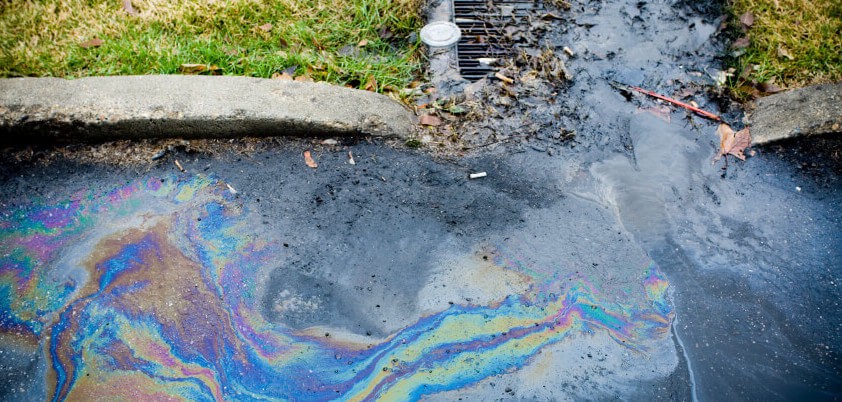Stormwater, by definition, is water from melting snow or rain that doesn’t soak into the ground. It flows from sloped lawns, bare soil, rooftops and over paved areas. This type of watercollects and transports a wide range of potential pollutants, including oil and grease, fertilizers, pesticides, salt used to de-ice roads, litter and animal waste.

Unmanaged stormwater runoffs have caused major damage to estuaries, lakes and streams across the United States, specifically where land uses change from rural to urban activities.
Stormwater, when left unchecked or taken for granted, causes the following major headaches:
- Water Shortages – This may occur in growing communities, particularly in areas with impervious surfaces. These surfaces prevent rainfall from replenishing streams and groundwater used for fish habitat or drinking water.
- Flooding – Given that stormwater is unable to soak into the ground, the flood can destroy residential and commercial properties. It can also overwhelm wildlife habitat, wetlands, streams and septic system drain fields.
- Water Contamination – Stormwater can contaminate clean water, harm or kill fish and other wildlife and even close local businesses. When this type of water passes over developed land, it gathers pollutants and dumps them to the closest storm drain. The filth will eventually reach the bays and rivers.
A treatment plant, a pollution permit or the promise of an effective stormwater management strategy from the local government may not always be enough to address stormwater pollution, as runoffs may come from individual and small sources. This is a problem that everyone plays a part in solving. It’s an issue that residents can change by stopping activities that result in large-scale pollution.
If you’re looking to minimize stormwater problems in your area, take note of the following suggestions:
- Wash Your Car Responsibly
If you’re going to have your car or vehicle cleaned for an upcoming road trip, consider having your ride washed at a commercial car wash plumbed to a treatment plant.
Here’s why: when you wash your auto on the street or driveway, the soap, grease or dirt can wash into storm drains directly to streams and creeks.
Concentrations of detergents in rivers or streams can kill fish and other wildlife, as well as prevent them from reproducing effectively. These cleaning products can also damage the natural protections fish have against parasites and bacteria.
If you’re washing your car using soap, the phosphates in that product can result in excess algae growing in your area’s waterways. The excessive growth of algae can make water stinky, unattractive, green and cloudy. This will make the water unfit for drinking, fishing, boating and swimming.
If you do plan to take your vehicle to a car wash, make sure that the business owner directs the rinse water to a wastewater treatment plant instead of a storm drain.
If you insist on washing your car at home, do it on gravel or grassy areas that can absorb the water. Your goal is to prevent the rinse water from making its way into the street.
- Check Your Vehicle for Leaking Fluids
Incorrect disposal of used oil, which includes oil leaking from a vehicle, significantly contributes to stormwater pollution. If you come across an oil leak in your car, have this issue fixed as soon as possible. Regardless of the quantity of the oil leak, you do not want that to make its way to the storm drains.
Also, when changing the essential automotive fluids on your own, consider recycling your used motor oil. Many places that sell this type of oil also collect it free of charge.
If you come across an accidental spill, don’t panic. Pour kitty litter or sand over the spill. Then, wait for several minutes for the material to absorb the oil. After that, sweep up the solid materials and dispose of the sand or kitty litter properly.
- Control Pests Around Your Home Through Integrated Pest Management
Pesticides can kill cockroaches and other nasty critters. They can, unfortunately, be harmful to the environment. If you’re going to use pesticides, do so cautiously. This entails following an integrated pest management (IPM) approach. This is a process you can follow to eliminate pest problems in your residential property while reducing risks to public health and the environment.
- Throw Your Garbage Properly
Litter can wash into streams and creeks through storm drains wherein water from the streets goes untreated. As a responsible citizen, you should never litter. Pick up any garbage you see and put it in the appropriate disposal container.
Don’t let stormwater pollution destroy the city or town you love along with the environment. Mitigate the effects of this type of pollution by taking note of these four valuable suggestions.